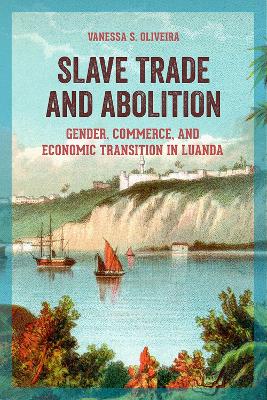Well into the early nineteenth century, Luanda, the administrative capital of Portuguese Angola, was one of the most influential ports for the transatlantic slave trade. Between 1801 and 1850, it served as the point of embarkation for more than 535,000 enslaved Africans. In the history of this diverse, wealthy city, the gendered dynamics of the merchant community have frequently been overlooked.
Vanessa S. Oliveira traces how existing commercial networks adapted to changes in the Atlantic slave trade during the first half of the nineteenth century. Slave Trade and Abolition reveals how women known as donas (a term adapted from the title granted to noble and royal women in the Iberian Peninsula) were often important cultural brokers. Acting as intermediaries between foreign and local people, they held high socioeconomic status and even competed with the male merchants who controlled the trade. Oliveira provides rich evidence to explore the many ways this Luso-African community influenced its society. In doing so, she reveals an unexpectedly nuanced economy with regard to the dynamics of gender and authority.
- ISBN10 0299325806
- ISBN13 9780299325800
- Publish Date 26 January 2021
- Publish Status Active
- Publish Country US
- Imprint University of Wisconsin Press
- Format Hardcover
- Pages 272
- Language English
